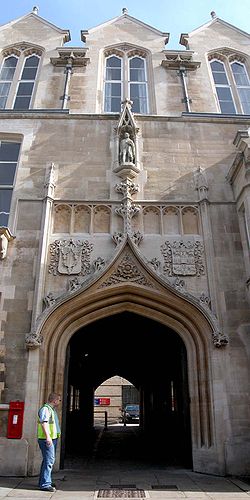
The schools of the University of Cambridge are the largest academic subdivisions of the university. The schools are composed of faculties and departments. [1] [2] There are more than a hundred departments and other academic institutions. [3] Members of these are usually also members of one of the colleges, and responsibility for the entire academic programme of the university is divided among them. The six schools are:
Contents
- School of Arts and Humanities
- School of the Biological Sciences
- School of Clinical Medicine
- School of the Humanities and Social Sciences
- School of the Physical Sciences
- School of Technology
- See also
- References
- Arts and Humanities
- Biological Sciences
- Clinical Medicine
- Humanities and Social Sciences
- Physical Sciences
- Technology

Each school has an elected supervisory body known as a Council, composed of representatives of the various constituent faculties and other academic units. The faculties have varying organisational substructures that partly reflect their respective histories and the university's operational needs, which may include a number of departments and other institutions.
There are also a small number of non-school bodies that also have some responsibility for teaching and research, including Cambridge University Press and Assessment, the University Library, and University of Cambridge Professional and Continuing Education. This last body was previously called the Institute of Continuing Education, and is based primarily in Madingley Hall, a 16th-century manor house in Cambridgeshire. Its award-bearing programmes include both undergraduate certificates and part-time master's degrees. [4]






